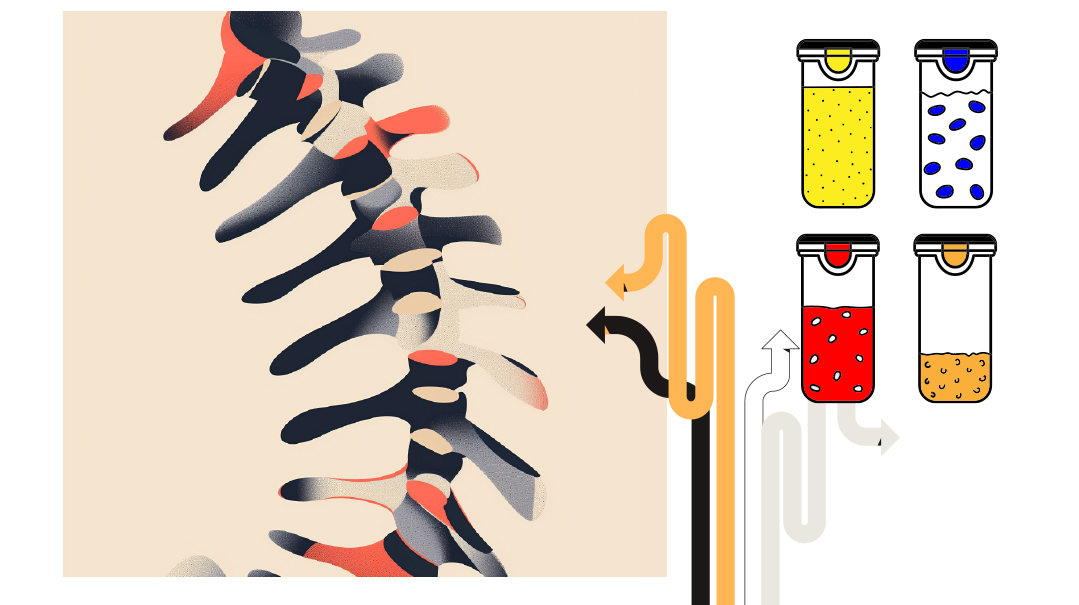Planting Seeds
| March 5, 2024A critical understanding of human attachment is recognizing the need to be seen

Planting Seeds
Zipora Schuck and Devora Schuck
P
arents and teachers often praise children with short, quick statements — good job, nice, amazing. While these clichés may allow the adult to check off “positive acknowledgement,” they don’t contribute much to building the child’s self-esteem.
When your toddler is begging you to go outside, your natural response might be, “I can’t take you now; you need to wait a few minutes.” But what if you said this? “You really want to go right now, but you’re waiting so patiently.”
Now your child knows what patience feels like.
How do you respond to your eight-year-old when she clears her plate off the dinner table? Your default setting might be, “Everyone has a job after supper, and that’s yours.” But what if you tried this? “It was really responsible of you to clean up after yourself.”
Now your child knows she is responsible.
What do you say when your tween’s rebbi calls to discuss his misbehavior? You might say, “You better tell me exactly what happened. Don’t even think about making up a story!” What about trying this? “You’re such a truthful boy, so I know we’ll be able to discuss this calmly together.”
Now your tween knows he can be truthful.
When your 17-year-old is on the phone for hours helping two friends with some social drama, you might say, “I can’t believe you wasted your whole night on the phone when I needed your help!”
What if you said this? “Your friends are so lucky to have you.”
Now your teen knows you value her caring nature.
When your spouse is struggling, you might be tempted to say, “Life is tough, and you’ll just have to deal with it.” What if you said this? “You’re so brave for dealing with this even while you’re scared.”
Now your spouse knows that you value his bravery.
Speaking about the specific attributes or character traits that others are actively using, or even just beginning to use, helps them grow their inner garden of greatness. Sometimes the other person is waiting to be acknowledged; other times, they aren’t fully aware of the strength they are using, and naming it helps them identify it for themselves, so they can do it again.
Affirming these qualities can be done either before, during, or after the behavior is expected or observed. Before asking a child to do something, you can prep them like this: “I know this will be hard, but you can do it, because you are such a patient… or helpful… or hardworking child.”
While your child is engaged in doing something challenging, you can comment on the flexibility they showed, or self-control they exhibited, even if it was only momentary.
After your child got into a fight with their sibling, you can comment on how they were mevater, used only their words, or ended the argument instead of escalating it further.
A critical understanding of human attachment is recognizing the need to be seen. If you’re always seeing what children or students are doing wrong, then that is how their self-concept will develop and how they will learn to evoke responses from those in their world. If you are finding and naming the many wonderful things they are doing, ways that they are unique and special, chances are they will realize these traits are part of their repertoire and do them again.
Zipora Schuck MA. MS. is a NYS school psychologist and educational consultant for many schools in the NY/NJ area. She works with students, teachers, principals, and parents to help children be successful.
Devora Schuck, LCSW, is a psychotherapist who treats anxiety and trauma in children, teens, and young adults.
No Worries
Sara Eisemann
“Worrying is carrying tomorrow’s load with today’s strength. Worrying does not empty tomorrow of its sorrows; it empties today of its strength.” —C. Boom
In our house we like to tell the worrying joke. “Ninety percent of the things we worry about never happen… you see? It helps!”
Worrying sits snugly next to guilt at the top of a Jewish mother’s list of favorite pastimes. Ironically, both are about as useful and as hard to get rid of.
Worrying provides an illusion of control. When we obsess about the what ifs and shoulda coulda wouldas, the humming in our brain can briefly fool us into thinking we’re actually doing something about the problem at hand. We can easily confuse activity with productivity, when in fact, all worrying does is drain us. It’s a lot like jogging in place — you’re moving but you’re not getting anywhere, and you still end up tired.
Worrying can also feel like concern. It becomes a way to stay connected with the person or the problem. Letting go of the worry can feel callous or like a loss. And finally, it can feel like the responsible thing to do. We can convince ourselves that the worry is helping us come up with solutions.
In reality, though, worry drains us of hope and the creative energy needed to actually come up with solutions. It deprives us of a connection with Hashem because our energy is so focused inward that we forget to turn upward. By owning the problem, we forget to give it over to Hashem. We forget that we only get the tools we need to get through a nisayon when we need them. What a waste to try figuring out a solution to a problem for which we don’t yet have all the necessary resources.
Sara Eisemann, LMSW, ACSW, is a licensed therapist, Directed Dating coach, and certified Core Mentor.
Staying Safe and Stable
Abby Delouya
Ironically, stability can be triggering. If we come from disorganized, avoidant, or anxious attachment backgrounds, being around someone who is stable and securely attached can feel dysregulating. Sometimes people can sabotage stability because it feels too intimate, scary, or confusing. They may create tension in a relationship for little or no reason, overthink and become anxious because things feel “too calm,” or engage in other volatile relationships — perhaps at work, with family members, or friends.
It can be challenging to learn how to communicate your needs, fight in a healthy and appropriate way, and trust the process of earning a secure attachment in adulthood. It is possible, however, to rewire those neuropathways, and with self-compassion and introspection, even the stability-challenged can develop healthy, secure bonds that feel safe.
Abby Delouya RMFT-CCC, CPTT is a licensed marriage and family therapist in private practice, specializing in trauma and addiction. Abby is also the COO and Director of Intake of Ray of Hope.
(Originally featured in Family First, Issue 884)
Oops! We could not locate your form.







